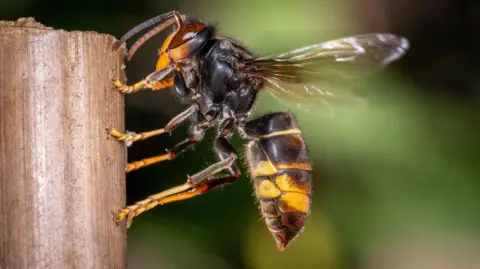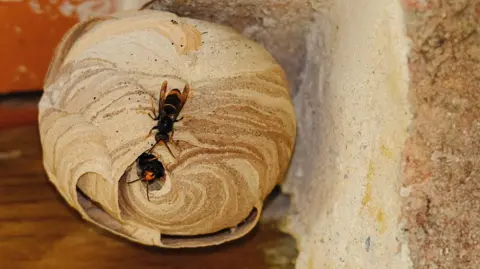Warning after hundreds of Asian hornets trapped
 PA Media
PA MediaIslanders have been urged to check their properties for Asian hornet nests as a record number of queens have been trapped.
On Sunday, the Jersey Asian Hornet Group (JAHG) said 887 Asian hornet queens had been trapped, up from 619 on 24 April, compared to 200 captured in the whole of 2024 and 298 in 2023.
Founders of JAHG said a total of 58 embryo nests had been found and warned that worker hornets will soon start to leave the nests.
John De Carteret, from JAHG, said: "People get stung as the increasing number of workers protect their nest from the slightest disturbance - and it hurts."
'Look up'
Mr De Carteret said: "I cannot emphasise enough that now really is the time to be checking in and around your properties and to look up for any Asian hornet nests while they are still at the embryo stage.
"This means that only a queen is present, because from now on more and more workers will be emerging from more and more nests."
He said on this date in 2024 the count was 61 queen hornets and five nests, while in 2023 those figures were 71 and two.
The first primary nest was found a month earlier this year than in 2024, he added.
 PA Media
PA MediaIn April, Alastair Christie, Jersey government's senior scientific officer for invasive species, said it had been "a good winter" for Asian hornet queens with consistent temperatures.
The invasive species, first discovered in the Channel Islands in 2016, feeds on native bees and wasps, damaging biodiversity.
Anyone who suspects they have found an Asian hornet is asked to send a photo and details to the Jersey team via [email protected].
Follow BBC Jersey on X and Facebook. Send your story ideas to [email protected].
